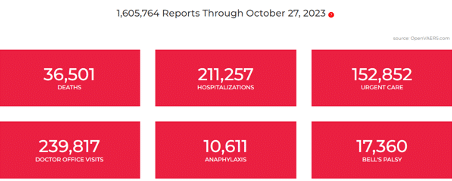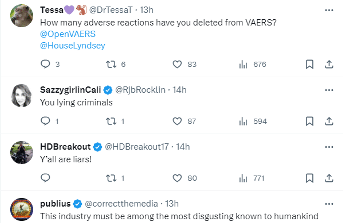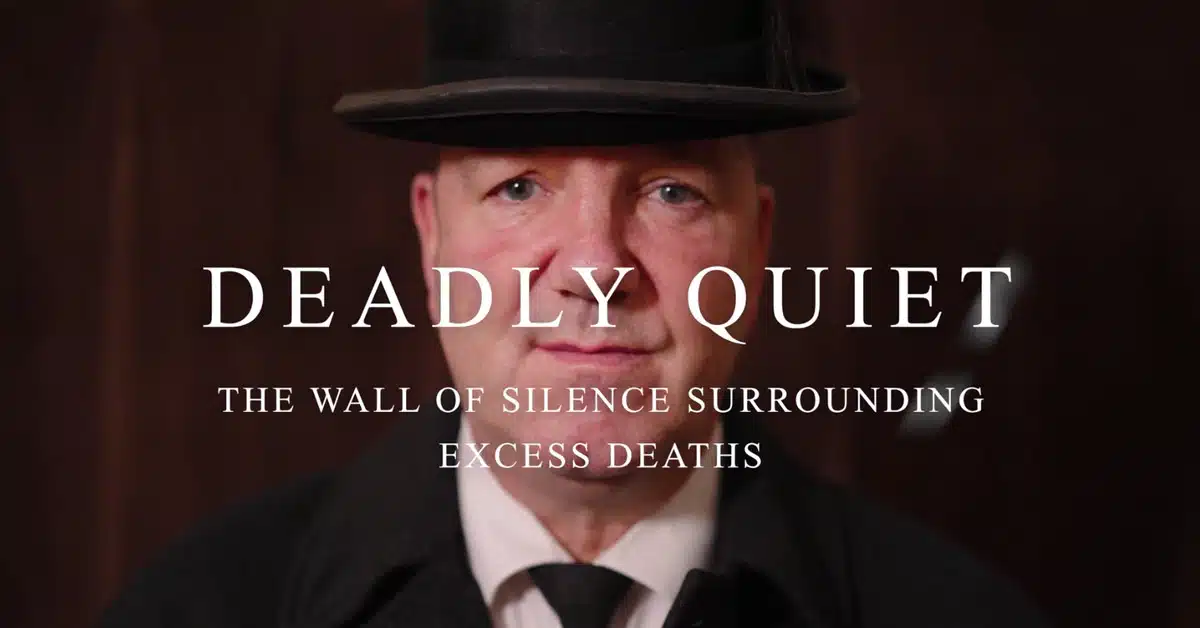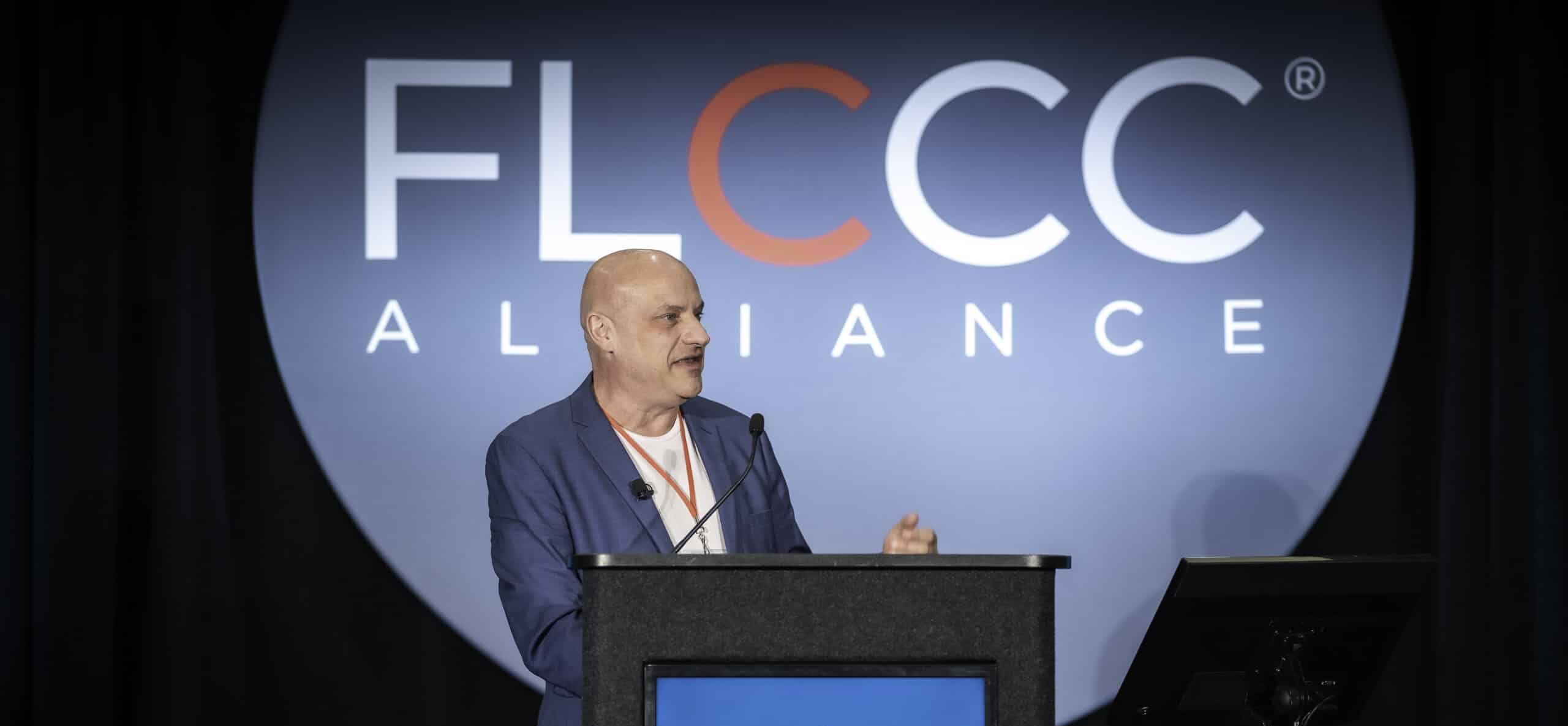In what might be the Food and Drug Administration’s most ridiculous and tone deaf social media post since “You are not a horse,” this week @US_FDA took to X to mansplain what an incredible job they’re doing keeping Americans healthy, safe, and informed

“Monitoring vaccine safety is an important responsibility shared by @CDCgov and the FDA,” the post declared. “And there’s no part of America’s vaccine safety system more talked about than the Vaccine Adverse Event Reporting System (VAERS).”
More talked about… That’s one way to put it. (For reference: There’s no pint-sized climate activist more talked about than Greta Thunberg and no philanthropath more talked about than Bill Gates.) Also, wait. Are there other parts of our vaccine safety system?
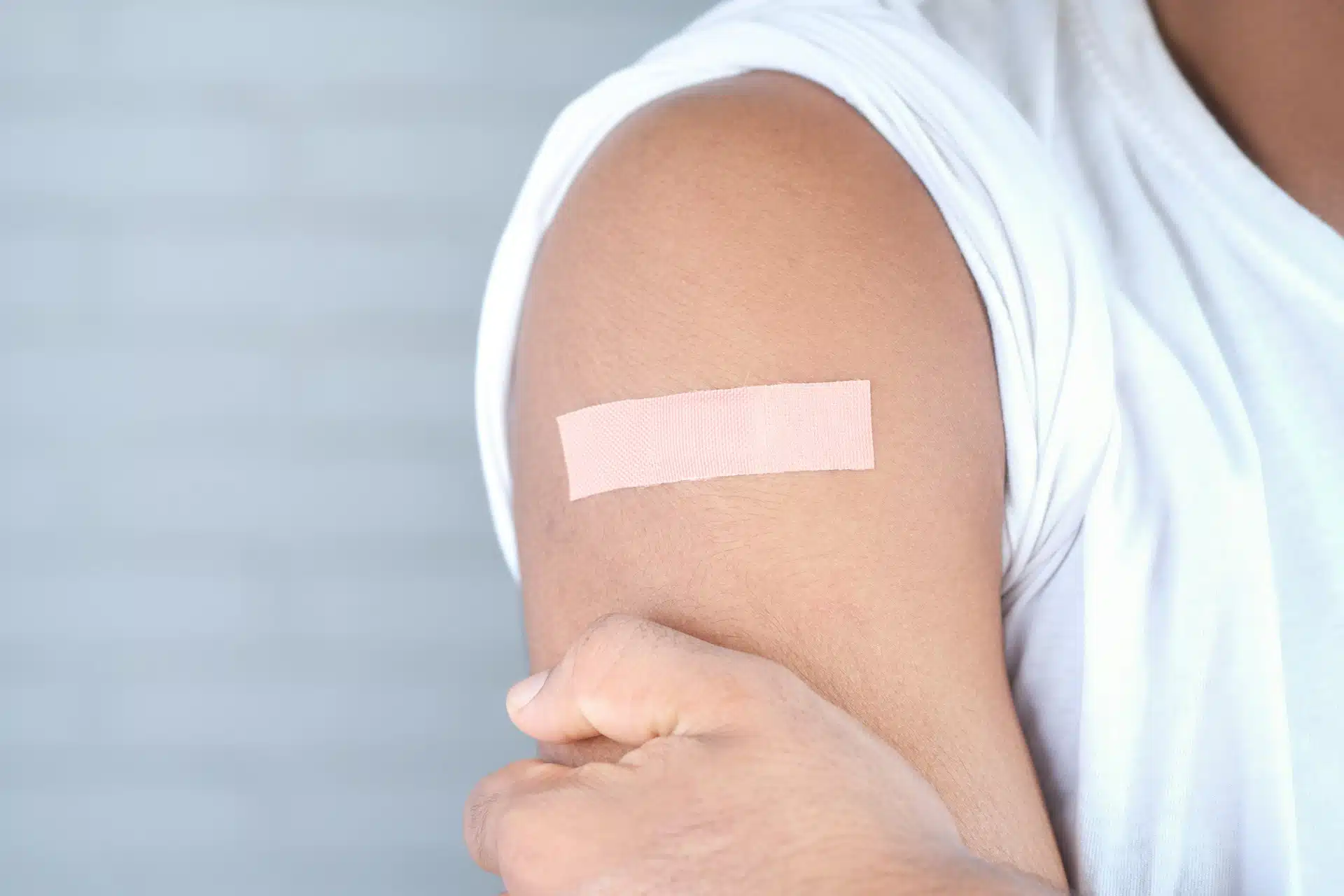
For those not in the know, VAERS was established in 1990 jointly by the CDC and FDA as a national vaccine safety surveillance program. It allows healthcare providers, patients, and vaccine manufacturers (as if! hahahahaha) to report adverse vaccine reactions so that, at least theoretically, health authorities can detect and investigate potential concerns. For what it’s worth, VAERS is the single system we’ve used since its inception to pull prior vaccines from the market for a scant handful of adverse reactions.
In what reeks of a desperate attempt at damage control, the FDA’s thing-that-was-once-called-a-tweet links to a self-congratulatory essay describing what VAERS was designed to do (detect and monitor danger signals) and detailing just how diligently and effectively it does this (ahem) while, of course, highlighting its limitations: Anyone can submit a report. Navigating the database can be confusing. The data can be incomplete or inaccurate. There’s no verification process or procedure. There’s no control group.
They left out my personal, platitudinous favorite: correlation does not equal causation, perhaps because the correlation is off the charts?
(On that note: Correlation may not equal causation, but it can certainly imply it. Let’s say you invite me and 11 other pals over for a lovely meal and I wake up the next day doubled over in abdominal pain. In the absence of any other correlation, I’d have a hard time definitively pinning my digestive distress on your chicken piccata. But if every single one of your dozen guests finds themselves participating in an unplanned internal cleanse at the exact same time within hours of your otherwise delightful dinner party, it doesn’t take an Einstein-level IQ to connect the dots.)
Rather than acknowledging the alarming, unprecedented spike in adverse events since the COVID jab rollout, the FDA spin job features VAERS “success stories” like these:
“After VAERS detected an increase in rare, life-threatening allergic reactions just weeks after the first vaccines were administered, for example, the CDC and the FDA provided information and guidance to help prevent and manage them.
Just days after VAERS detected that six out of the more than 6 million patients who received the Janssen vaccine had developed blood clots, the CDC and the FDA paused the use of the vaccine to better understand this adverse event.
And after detecting myocarditis following the mRNA COVID-19 vaccines, the CDC provided advice to healthcare providers about the potential risk and recommended that some people, primarily teen and young adult males, space out their vaccines.”
See? They’re not only carefully monitoring these very rare side effects, they’re also encouraging the radical notion of not getting dozens of inoculations at once. They’ve even gone so far as to pause use of one of the vaccines for five minutes (although they neglected to add the pause was almost immediately lifted)! They are on it, you guys.
The piece goes on to claim that serious reports are investigated and responded to within days, painting a romantic picture of heroic FDA and CDC physicians and scientists working side by side late into the night to evaluate submissions together. After acknowledging a backlog in 2020, the piece boldly claims that the pileup of serious reports was cleared within a month. (I imagine a VAERS employee being given a shiny new rubber REJECTED stamp and instructions to “clear this backlog!”)
The whole thing reminds me of this caustic exchange from the hilarious 1980s movie, About Last Night:
Bernie: What do you do?
Joan: Me?
Bernie: Well, yeah, for a living?
Joan: I’m a neurosurgeon, you?
Bernie: I’m a professional boxer. You know much about the fight game?
Joan: No.
Bernie: I’m the heavyweight champion of the world.
The essay accidentally forgot to mention one of VAERS’ greatest limitations—as acknowledged right on the site: underreporting. It’s not even buried in some obscure hyperlink at the bottom; this disclaimer lives rent free on the home page in surprisingly robust type: “[VAERS] is a voluntary reporting system that has been estimated to account for only 1% of vaccine injuries.” [Emphasis mine.]
Flipped on its unfathomable head, that statement suggests that you would have to multiply the already astronomical VAERS numbers a mind-bending 100 times to get something more closely resembling the actual carnage. Keep that staggering calculation in mind as you peruse the latest stats available on the Open VAERS website:
So those 1,605,764 total adverse events could be more like 160,576,400 unexpected, unwanted, and unpleasant side effects ranging from miscarriage to myocarditis. The 36,501 deaths? Make that 3,650,100.
The figures are so unfathomable that their incomprehensibility actually feeds the narrative: That’s. Just. Not. Possible.
Even without exponentiating them, the numbers are numbing. And yet somehow, the FDA managed to tie up their little press release with this baffling bow: “Bottom line: VAERS works and has a track record that proves it.”
The commenters on X weren’t buying this fresh crop of BS.
Neither, I imagine, would the British Medical Journal. Last week, the British Medical Association’s widely recognized and respected journal dropped a bombshell of a story titled, Is the US’s Vaccine Adverse Event Reporting System Broken? The rhetorical titular question is answered unequivocally in the paper, which features several heartbreaking cases of post-vaccine casualties and details, painstakingly, just how deficient our country’s singular vaccine injury-reporting system is. The exposé’s author, Jennifer Block, writes:
“VAERS is supposed to be user friendly, responsive, and transparent. However, investigations by The BMJ have uncovered that it’s not meeting its own standards. Not only have staffing levels failed to keep pace with the unprecedented number of reports since the rollout of Covid vaccines but there are signs that the system is overwhelmed, reports aren’t being followed up, and signals are being missed.”
It’s so British to use the more polite, less finger-pointing, passive tense there, isn’t it? “The signals? Bollocks, mate. Seems they’ve been a bit missed.”
Block continues:
“Our investigation has found that, in stark contrast to the US government’s handling of adverse reaction reports on drugs and devices, the publicly accessible VAERS database on vaccines includes only initial reports, while case updates and corrections are kept on a separate, back-end system. Officials told The BMJ that this was to protect patient confidentiality—but this means that patients, doctors, and other public users of the database have access only to an incomplete and uncorrected version.”
The author is unforgiving in her commentary, a refreshing change from the COVID-era “journalism” we’ve been spoon-fed like witless toddlers for the last three years.
“The BMJ has learnt that in the face of an unprecedented 1.7 million reports since the rollout of covid vaccines, VAERS’s staffing was likely not commensurate with the demands of reviewing the serious reports submitted, including reports of death,” Block notes.

“While other countries have acknowledged deaths that were “likely” or “probably” related to mRNA vaccination, the CDC—which says that it has reviewed nearly 20 000 preliminary reports of death using VAERS (far more than other countries)—has not acknowledged a single death linked to mRNA vaccines.”
In case you missed it: The CDC has not acknowledged a single death linked to mRNA vaccines.
The BMJ piece doesn’t just detail a dysfunctional, understaffed, overwhelmed system; it exposes a decidedly broken one. Amid anecdotes of doctors who were never once contacted after filing reports and others who were discouraged from filing altogether, there’s the story of James Gill, a medical examiner who filed his first-ever VAERS report in 2021, after performing an autopsy on a 15-year-old boy. Gill concluded the cause of the boy’s death was “stress cardiomyopathy following second dose of the Pfizer-BioNTech COVID-19 vaccine,” and published the results in the Archives of Pathology & Laboratory Medicine. To this day, Gill’s report has not been given a permanent VAERS ID number, and he has never been contacted by the CDC, unless you count the letter they submitted to the Archives contesting his forensic findings.
But VAERS works and has a track record that proves it! The FDA said so in its very official-sounding press release. Stop being so conspiratorial or theoretical and trust The Science.™
Some people [raises hand and waves it wildly] suspect the system’s staffing shortage, lack of basic standard operating procedures, and frustrating user interface are intentional strategies being employed to thwart the detection of the flashing danger signals emerging from its data. Those same folks know—I’m told—that these dubious dealings are akin to rearranging the deck chairs on the Titanic: they may make the movers feel productive and take their minds off the looming doom, but sooner or later, that ship is going down.
Just don’t hold your breath waiting for the FDA to tweet* about it.
*Can someone please hurry up and come up with a name for X posts other than “X posts?” TIA.


